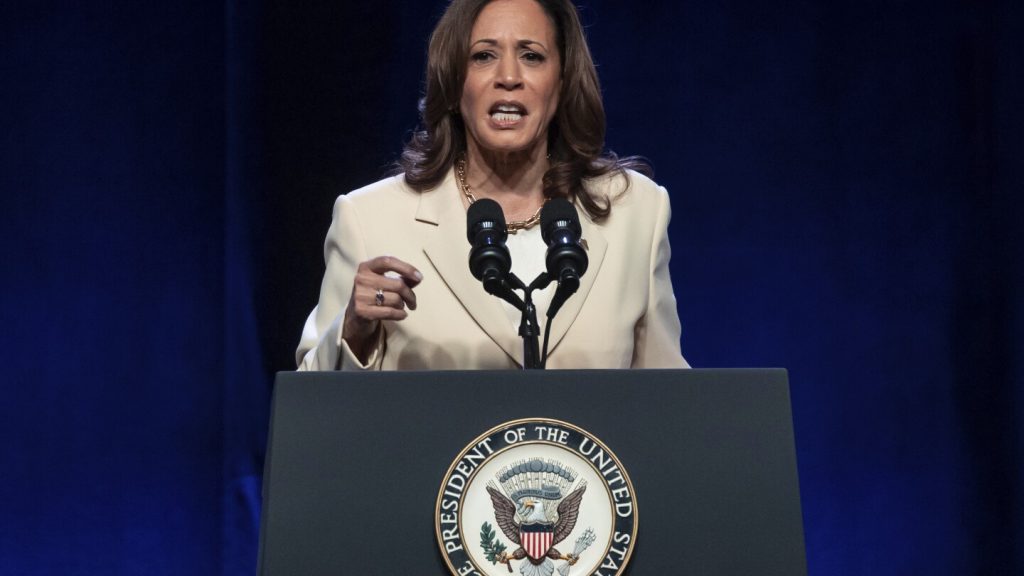Vice President Kamala Harris marked the second anniversary of the Supreme Court decision overturning Roe v. Wade by accusing former President Donald Trump of intentionally appointing justices who would roll back women’s reproductive freedoms. Harris, a former prosecutor, stated that Trump is “guilty” of stealing reproductive freedom from American women. As President Joe Biden prepared for his upcoming debate with Trump, Harris took the lead in addressing events related to reproductive rights on the anniversary of the landmark decision.
The campaign has been highlighting the stories of women who have been impacted by restrictive abortion laws, with many joining the effort after facing life-threatening situations due to these laws. With federal protections overturned, the issue of abortion rights now largely depends on state legislatures, leading to a wide variation in laws across the country. Currently, millions of women in states with abortion restrictions are facing dire consequences, changing the landscape of medical practice for doctors who provide reproductive health services.
Despite Trump’s role in appointing Supreme Court justices who voted to overturn Roe v. Wade, he has not openly supported a national abortion ban. Polls show that a majority of Americans believe abortion should be legal in at least some cases, with strong support for cases where the pregnant individual’s health is endangered. Other Democratic candidates are also focusing their campaigns on reproductive rights, viewing it as a key motivating factor for voters in critical swing states.
Health experts, politicians, and advocacy groups are emphasizing the importance of protecting access to abortion, contraception, and emergency medical care. The White House has been working to implement executive orders aimed at safeguarding reproductive health rights, regardless of the outcome of the upcoming election. Legal battles, such as the Justice Department’s lawsuit against Idaho’s restrictive abortion law, continue to shape the landscape of reproductive rights in the country.
The Supreme Court’s recent decision to preserve access to a key medication used in abortions highlighted the ongoing debate surrounding abortion rights. Another related case, involving the Emergency Medical Treatment and Active Labor Act (EMTALA), raises questions about the obligations of doctors in emergency situations. As the abortion debate continues to unfold, the focus remains on protecting women’s access to essential reproductive health care services and ensuring their right to make personal medical decisions.


